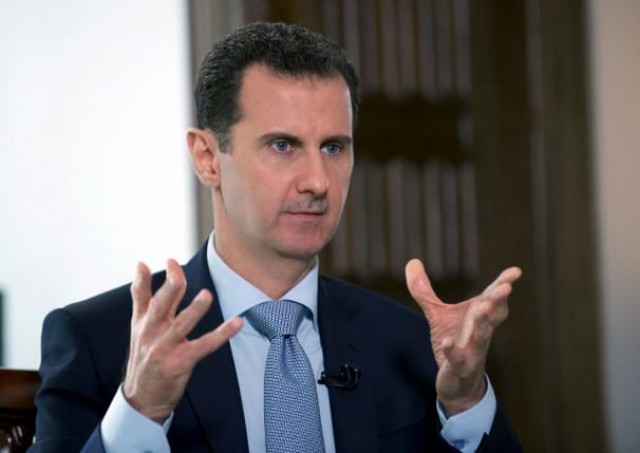Syria ceasefire
Two principal players in the Syrian war theatre have at long last cut a temporary ceasefire deal

Syrian President Bashar al Assad. PHOTO: REUTERS
But this latest agreement is significant in one aspect. It involves two key players whose goals hitherto in their separate bombing campaigns have been at cross-purposes, with Russia — in tandem with Iran — doing every bit to prop up the Assad regime and the US aiding militias to pull the rug from under the discredited leader. How this new alignment will play itself out, only time will tell. But while a permanent end to war at this stage is a distinct impossibility, a temporary halt will at least put much-needed balm on the tortured souls of Syrians. Under the seven-day truce, the Syrian army will be required to relax its hold on Aleppo allowing humanitarian aid to be delivered while rebels would stop fighting around government areas. If the ceasefire holds, the Russian and US military would start planning joint air operations against extremist groups, including IS and al-Nusra Front. If everything goes according to script, it could eventually lead to start of negotiations among all stakeholders. But a lot will need to go right for this to happen.
Published in The Express Tribune, September 13th, 2016.
Like Opinion & Editorial on Facebook, follow @ETOpEd on Twitter to receive all updates on all our daily pieces.














COMMENTS
Comments are moderated and generally will be posted if they are on-topic and not abusive.
For more information, please see our Comments FAQ